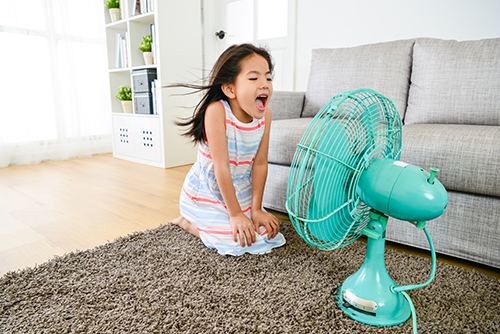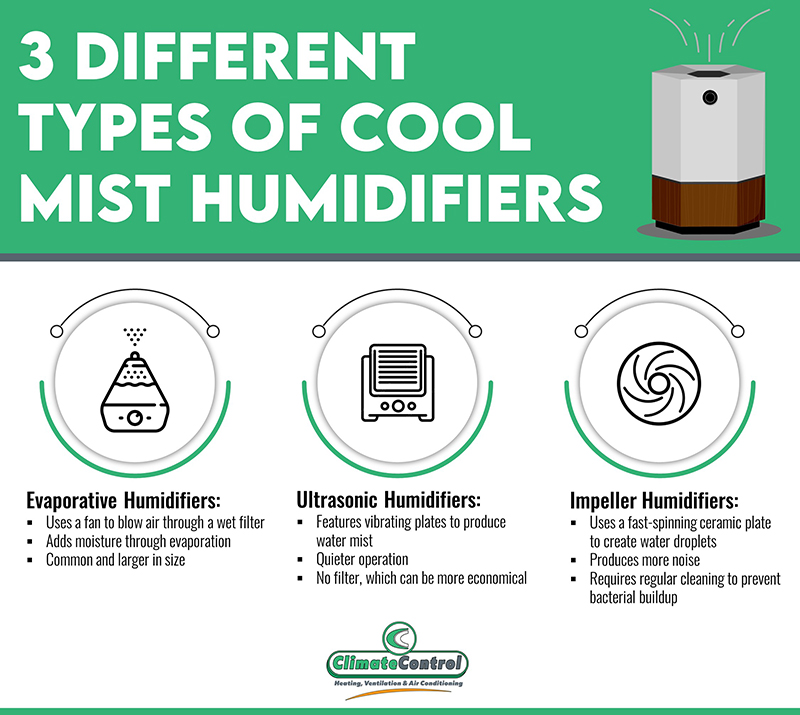
In normal instances, it’s rare to think about how moist or dry the air is until it’s at the extreme of either side. Humidity levels can affect your body in several ways; for example, drying up and cracking of the skin could indicate dry air while excess moisture on the skin signifies a high humidity level in the house.
Luckily, there are solutions to correct a problem with too much or too little humidity: humidifiers and dehumidifiers. Read on to find out more about each.
Humidifiers
Humidifiers add or increase the amount of moisture available in the air and are commonly used during the winter season when the air is cold and dry. The additional humidity prevents the skin from drying and minimizing the effects of nasal congestions and allergies.
Humidifiers are an essential component in our homes during the winter to facilitate regulating the humidity levels and helping us survive the brutal weather. There are different models of humidifiers, and even though they produce similar results, the process by which they add moisture differs significantly.
Warm Mist Humidifiers
These are often referred to as steam vaporizers. Their operation principle involves boiling water and dispersing the resulting steam into the surrounding air within the room. It’s paramount to be vigilant while using the steam vaporizer since scalding is possible if the device is not well utilized.
Steam vaporizers usually work by using electricity to heat water in a fitted container section until it boils. The boiling water thus releases steam, which is cooled and later dispersed within the room.

Cool Mist Humidifiers
Cool mist humidifiers increase the humidity levels in the air by adding or dispensing cool water droplets. They don’t involve any heating or boiling of water. Therefore, they are considered a safer option. However, there is a downside to using cool mist humidifiers. There is a possible risk of bacteria buildup within the humidifiers, which can later be dispensed into the air.
Cool mist humidifiers are classified into several types. These include:
1. Evaporative Humidifiers
In this type of humidifier, a fan is usually used to blow cool air through a wet filter, thus moisturizing the cool air. They are a common type of humidifier that uses the principles of evaporation to add moisture to the air by using a fan to speed up the process. Typically, an evaporation humidifier is larger than other types of cool mist humidifiers.
2. Ultrasonic Humidifiers
The ultrasonic humidifier features two spinning wet plates in constant vibration to produce additional water mist spread throughout the room. These models offer a much quieter operation and since they don’t have a filter that needs regular replacement, they can be very economical in the long run.

3. Impeller Humidifiers
The impeller humidifiers feature a fast-spinning ceramic plate that disintegrates water into tiny droplets that are then dispersed into the surrounding air. Generally, these types of humidifiers produce more noise than the other models, and they need regular inspection and cleaning to eliminate bacterial buildup.
Dehumidifiers
Dehumidifiers work to reduce the amount of moisture within your home, thus ensuring a dry and less humid environment. There are two major types of dehumidifiers:
Refrigeration-Based Dehumidifiers
Refrigeration-based dehumidifiers are commonly used in residential properties. These use a compact refrigeration system to draw and condense moisture from the air. The moisture is then collected into a container.
Desiccant Dehumidifiers
This type of dehumidifier is robust and powerful and often used in commercial buildings such as food and chemical processing sites. They utilize thermal energy instead of electricity. Additionally, they reduce humidity levels by using moisture-collecting materials instead of the condensation process.
Benefits of Both Humidifiers and Dehumidifiers
Depending on the situation, both humidifiers and dehumidifiers can be very beneficial.
Humidifiers help to address dry air problems and alleviate health issues such as:
- Bronchitis
- Nosebleeds
- Colds
- Sore throats
For these reasons, humidifiers are an ideal option for people who live in cold climates. Dehumidifiers reduce the humidity levels within the house.
This can be helpful in:
- Inhibiting mold growth
- Eliminating pest infestation
- Dealing with allergies
- Removing heavy and wet air
Acquiring suitable humidity-control devices for your home is essential. At Climate Control, we are more than happy to take you through our indoor air quality solutions. In addition, we provide a full range of residential and commercial cooling and heating services in Portland and the surrounding areas. We can replace air conditioners, install furnaces, maintain you heating system, and more.
Contact Climate Control Today!
